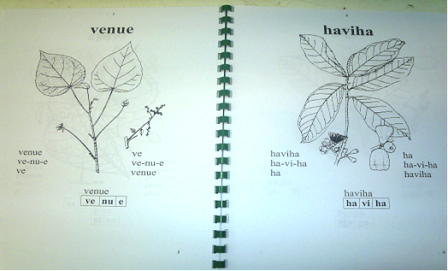Project “Indigenous Language Revitalisation and Preservation in Melanesia and the Pacific – Phase II” completed

UNESCO has been taking several steps for the safeguarding of our linguistic diversity both through nomative and operational actions.
The most outstanding result of this Funds-in-Trust project has been achieved for the safeguarding of five languages (Ale, Akei, Araki, Moiso, and Pelmol) in Santo Islands in Vanuatu under the coordination of Ms Hannah Vari-Bogiri and Dr Robert Early at the South Pacific University (Emalus Campus). National training workshops held in Luganville provided an opportunity for teachers from the five different language communities got together to learn skills necessary for conducting linguistic research, developing orthographies and producing educational materials for school use. Flash-cards, books on birds, trees, fish and sea creatures, and posters were produced during the workshop, and they were taken back to the schools in the five language communities.

The evaluation especially highlighted the positive impacts of the National Language Commission and National Language Policy in Vanuatu established as a result of the project to address the importance of the linguistic diversity in the country.
- Source:UNESCO Apia
- 29-01-2010

